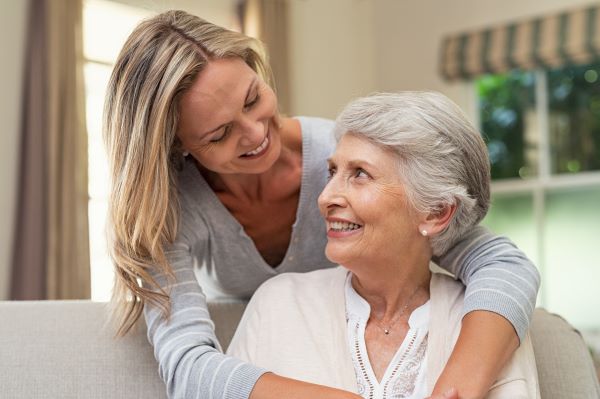Watch “In The Legal Know” with Vincent J. Russo Vincent appeared on CFN Live on…

Caring for an Elderly Relative
Within the family, caring for elderly relatives comes naturally. The love and care many adult children receive growing up become reciprocal, particularly in the case of their aging parents. But with the advent of longer lives, it is not uncommon for seniors to care for their parents or spouse. More than 16 % of adult Americans are unpaid caregivers to someone age 50 or more, and the number is projected to increase, according to Right at Home, a leader in the in-home senior care industry.
Caregivers Have Health Issues of Their Own
Many of these caregivers are trying to cope with their health challenges while still providing care for others. The Family Caregiver Alliance reports that over one-third of caregivers are more than 65 years of age, and one-third of them say their health is fair or poor. The workload for many of these family caregivers precludes them from prioritizing a healthy lifestyle for themselves. Some even lack healthcare coverage. Steps can be taken to break the cycle of a family caregiver putting their health at risk. Breaking these caregiving patterns can prevent ongoing problems for later generations.
Communicating with Doctors and Family
Open a dialogue with your loved one’s healthcare provider and your own. If you do not have a doctor or schedule annual physicals, it’s time to get that in order. Inform both physicians that you are a caregiver and outline your routine and hours spent caring for others. All health providers should be aware that caregiving creates a potential health risk that must be addressed. Take their advice to heart and implement strategies to protect your quality of life.
Call a family meeting with all siblings, adult children, and any other relevant family members. If family members live in different areas, they still need to be part of the discussion and the solution. Caregiving roles often happen by default. One family member starts with a few minor tasks, and it turns into something much more significant. You can’t and shouldn’t provide care alone. A spousal caregiver can find it especially challenging to ask for help. They might suffer higher levels of depression, relationship strains, and physical and financial burdens. Caregiving works best when everyone participates in some way.
Caregiver Resources and Support
Check out support services both online and locally. Many adult caregiving guides can inform the family about the scope of their undertaking. It will also provide a structure that can be divvied up among family members. Senior service agencies can recommend support and care services for your loved one as well as the primary caregiver. Devise a plan to meet the challenges head-on. Make amendments as health needs change. Know there will likely come a time when your loved one will do better in an assisted living facility.
If an outside living facility is not possible, then get some downtime. Bring in a professional caregiver to lighten the workload. It can be just a few hours a week that someone else provide personal care, housekeeping, meal prep, and transportation. Research and identify the right match for a professional caregiver for your family.
Knowing that you do not have to go it alone positively impacts the person requiring car . The time spent together is less stressful and guilt-ridden when caregiving is a shared responsibility.
We help families navigate the difficult decisions around caregiving and how to pay for care.
To speak with one of our experienced elder law and estate planning attorneys, please contact our office today at 1 (800) 680-1717. We would be happy to meet with you to discuss a tailored plan to meet your family’s needs.




This Post Has 0 Comments